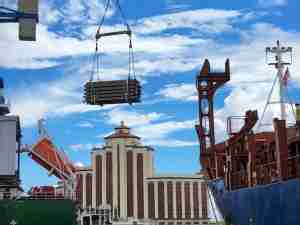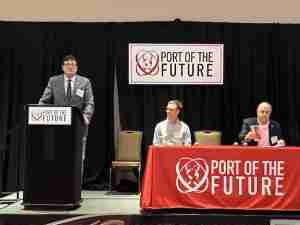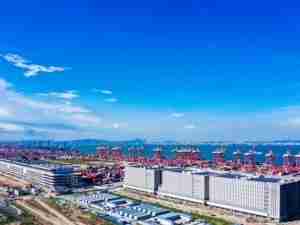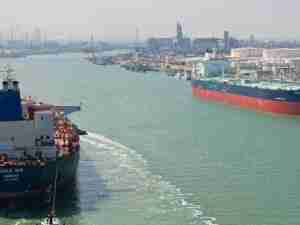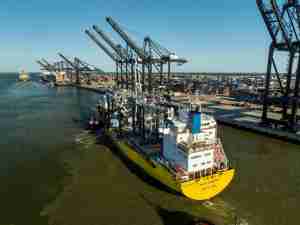Rotterdam misses out on cargo due to unfair competition
posted by AJOT | Mar 06 2014 at 01:52 PM | Ports & Terminals
The port of Rotterdam is missing out on almost 1 million TEU of containers a year because ports in Germany and Flanders receive financial support from their governments. That was revealed by the study ‘Level playing field’ that was commissioned by the Ministry of Infrastructure and the Environment. “The Port of Rotterdam Authority finances investments in port infrastructure itself, whereas the governments in Flanders and Germany contribute or make up the difference if their port managers make a loss. That leads to a distortion of the market, so that the terminals in Rotterdam lose cargo to their rivals in Hamburg and Antwerp in particular”, says Allard Castelein, Chief Executive of the Port of Rotterdam Authority
In the study that was carried out by RHV-Erasmus University and Ecorys, by order of the Ministry of Infrastructure and the Environment, it was calculated that Rotterdam would handle around 7% more containers if neighbouring countries did not subsidise their ports. If the costs of keeping the Elbe, the Scheldt and the Maas dredged were counted too, that would be as high as 10%. According to the researchers, the impact on other types of goods is much smaller or even non-existent, because this cargo is, for example, more associated with processing in the port itself.
The 7% or 10% for containers is surprisingly high, considering the fact that port charges in Europe (pilots, linesmen, tug services, terminal costs, port tariffs) only constitute 4% of the costs associated with transporting a container from Asia to a destination in Europe. The impact is so great because of the fierce competition in the container market. A couple of euro per container can make a difference. If the dredging work on the Elbe, Maas and Scheldt are left out of the picture, the Flemish ports receive €0.54 per tonne per annum from the government, the German ports €0.81 and the Dutch ports nothing.
No subsidy
The Port of Rotterdam Authority expects no financial support from the Dutch government such as that received by the ports in neighbouring countries. On the one hand, it is not realistic to ask for this because the government does not have the money for it. The Port Authority already pays towards public infrastructure on a regular basis. On the other hand, it is not desirable in a Europe without borders for governments to all subsidise their own ports. The free movement of goods and services on a level playing field is the cornerstone of a strong European economy. The Port Authority will approach the European Commission and Euro MPs about achieving that equal playing field and is urging the government to do the same thing via its own channels.
No corporation tax
At the same time, this study indicates that it would be extremely unwise to ask the Dutch ports unilaterally to pay corporation tax too. This could increase the Port of Rotterdam Authority’s tax burden by an extra €50 million or thereabouts per annum. The government has been ordered by the European Commission to introduce corporation tax for the Dutch port authorities as of 1 January 2016. Other countries have managed to handle this in such a way that, in practice, port authorities pay no or very little corporation tax.
The Port Authority also expects the government to take heed of the negative effect that the strict application of European rules has on the port’s competitive position. For instance, the Netherlands makes it obligatory to hold a permit for the deposition of, among other things, nitrogen oxides in Natura2000 areas from 1 mol per hectare, whilst this only applies in Germany from 7 mol per hectare. The report also provides examples of the less stringent inspection of cargo in surrounding countries. Customs in Le Havre, for example, has stopped using a container scan. Subsidies make rail transport in the German ports more attractive. In Flanders, only a proportion of the inspection costs are passed on to the sector; in the Netherlands the inspection charges are self-financing.
According to the World Economic Forum, port infrastructure in the Netherlands is the best in the world. Thanks to the heavy investments made in the area by the Port Authority and the business community andthe favourable geographic location at the mouth of the Rhine, the quality of the port of Rotterdam is excellent. Vessel traffic services, terminals and nautical services are superb. A structural, sizable subsidy for less well-positioned ports leads to sub-optimisation (which is ultimately bad for businesses and consumers), hampers European economic growth and undermines European integration.
